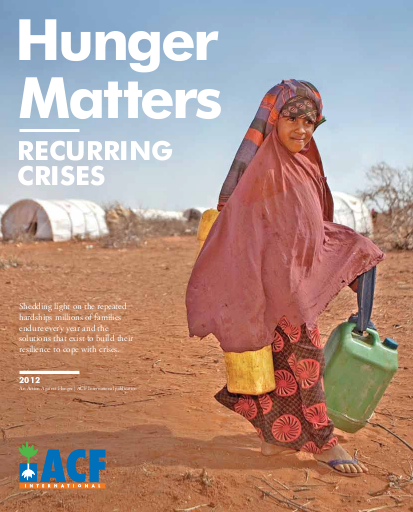
I am delighted to introduce Action Against Hunger | ACF International’s new-look annual publication, Hunger Matters. For more than 30 years, ACF has been at the forefront of major hunger crises throughout the world, supporting communities, households, parents, mothers and children, irrespective of their religion, race, tribe, age, gender or political opinions. We have always prioritised action above talk. However, through this annual publication, we would like to share the experiences of our teams who describe hunger as they see it every day: intolerable and unacceptable. Last year’s emergency in the Horn of Africa and the deteriorating situation in large parts of the Sahel region remind us that communities are often affected by cyclical food crises. For many of us living in richer countries, repeated hunger around the world has become a normal and inexorable reality. It should not be. In our world of plenty, it is unacceptable that young children are severely malnourished. This edition of Hunger Matters reports on the Recurring Crises that impacted scores of communities during 2011, and continue to impact them today. The facts are startling. Despite the world producing enough food for everyone, more than 55 million children under the age of five continue to suffer from acute malnutrition every year. This is caused in part by the daily struggles families face to survive, reducing their capacity to endure additional shocks such as conflict and natural disaster, and in part by seasonal variations in availability and access to food. The human cost of this devastating combination is revealed in “Life at the Sharp End” on page 13 – one woman’s story of hunger and hardship in Somalia. The articles, interviews and testimonies in Hunger Matters demonstrate the extensive experience ACF has in tackling persistent, debilitating undernutrition alongside its essential work to build the resilience of communities to both small and big shocks. However, too often the focus of donors, governments and aid agencies is on separating short term interventions from longer term solutions. More must be done to bridge the gap between programmes that deliver life-saving aid and initiatives that build the resilience of vulnerable communities for the long term.
